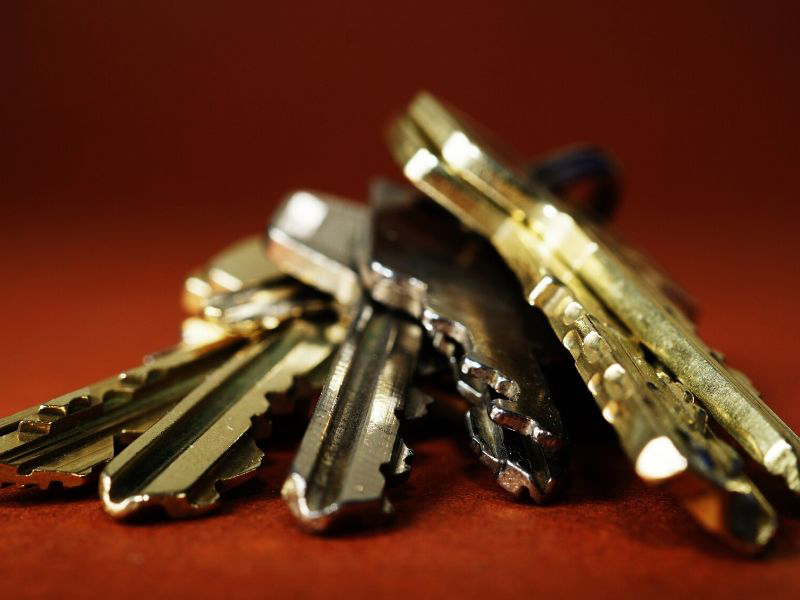What You Should Never Do When Looking to Purchase an Existing Laundromat
In recent years, thanks in part to writing for this magazine, as well as getting the opportunity to speak to store owners through the Coin Laundry Association’s Connect LIVE program, I’ve been able to meet with some great and very entrepreneurial folks from all over the country.
Many of these individuals are new investors looking to potentially get into the vended laundry business for the very first time.
Perhaps not surprisingly, several of these would-be store owners are primarily interested in buying existing laundromats with the idea of refurbishing and retooling these stores with brand new, state-of-the-art equipment. Some live in areas where there were various restrictions on building new laundromats, either by landlords or municipalities – or both. Others simply feel more comfortable buying an established business, rather than building a new facility from the ground up and needing to establish a customer base from scratch.
A number of my past articles have dealt with what one could – or should – do when either building or buying a vended laundry, including many of the things I’ve done successfully (and miserably) over the years with my laundromat business.
However, I’ve honestly been astounded by some of the statements prospective investors still make and the questions they continue to ask me. As a result, allow me to come at this crucial topic – purchasing an existing laundromat – from a completely different angle. Let’s talk about what you should never do when attempting to buy an already-existing store.
First and foremost, never believe the old sales pitch that you can visit your new laundromat business every Friday, simply fill the change machines with quarters and then go home until the following Friday. For so many years, this fairy tale has been a strong selling point to some naïve investors. However, total absentee ownership – which may be a catchy concept – is a terrible way of running any small business, including a vended laundry.
Never take anything the seller or broker tells you regarding revenue at face value. In most cases, if you can’t see it, it probably doesn’t exist. If the seller tells you that the store is earning a certain amount but has no written records to back it up – because it’s a “cash business” (wink) and not everything makes it to the bank – then it’s time to rely on the laundromat’s utility consumption, which can be determined through its utility bills. There are tried-and-true formulas that can verify machine usage and vends per machine per day. Remember, numbers don’t lie.
Never purchase a laundromat business based in part on its “great potential” or the “future revenue” you believe you can create. That money belongs to you, not the seller. You should pay only for the goodwill and cash flow the current owner has built up to this point.
Not to sound too cynical, but never completely believe the reason the seller gives you for wanting to sell his laundromat. He or she may tell you it’s due to poor health, to pursue other interests or simply to retire. More often than you might expect, I’ve found these “reasons” to be less than completely truthful.
You just might discover the actual reason has very little to do with the seller. You may uncover the real circumstances when you visit the building department, where you discover that the large apartment complex a few blocks away – where more than half of the store’s customers live – is scheduled to be demolished next year and replaced by upscale condos. Maybe the supermarket in the adjacent shopping center will be closing in three months. Perhaps a permanent median is scheduled to be installed in the middle of the street, cutting off customer access to the laundromat. Or maybe blueprints for a new, 5000-square-foot vended laundry to be built just across the street from the store you want to buy have just been approved. I think you get the idea.
Also, don’t forget to check with the local police department to see if crime in the neighborhood is on the rise.
Never purchase a laundromat that has less than 10 years left on its lease without having an opportunity to meet with the landlord or leasing agent (a provision in your “offer to purchase”) to try to reset the entire document or at least add some options to renew in the future.
Establishing a new lease when your current one is up puts you in an extremely weak negotiating position, making it difficult to be demanding of anything from the landlord. What’s more, the landlord today quite possibly may not even be the same person or management company come lease renewal time.
I know that eight years left on a lease sounds pretty good when you’re buying a small business in a strip center – except when that small business happens to be a laundromat! Then it can be very bad. Even if you’re not planning to invest a large amount of capital on retooling and refurbishing the store, you will still find yourself in a serious bind if you decide to sell your store some years down the road with little time left on the lease.
Even if your laundromat is doing great sales numbers when you decide to sell, your lease will be a tremendous liability and will significantly impact the value of that business – and not in a good way.
During your due diligence phase, never envision yourself standing behind the front desk and greeting your customers as they come through the door. Falling in love with owning and running your own laundry business is a natural instinct, but it begins to immediately create an emotional attachment and build a psychological case in favor of buying a particular store with no rational foundation.
People do this all the time when buying houses. They begin to picture their furniture already in the rooms, and savvy real estate agents are more than happy to help you “mentally” move in, often before you’ve even crunched the numbers.
Legendary mutual fund manager Peter Lynch once said, “Never fall in love with a stock. If the numbers don’t add up, dump it.” The exact same rational holds true for existing laundromats.
Never allow a business broker to stand between you and the seller, or between you and the landlord or shopping center leasing agent. By the way, the broker typically is paid by the seller with the funds coming from the successful sale of the business.
The selling price of a business includes payment to the broker, which means you’re paying a good portion of his commission. Therefore, you need to include “clear and full access to all principals” as a provision of your “Offer to Buy.”
Never take out a second mortgage on your home to help finance the purchase of a laundromat. I know this may sound extreme or even ridiculous, but I’ve seen its consequences over the years. If you wind up having to sell the store before you planned to or – worse yet – you end up going out of business altogether, you will find yourself not only unemployed, but possibly homeless as well.
Never pass up an opportunity to dig a little deeper into buying a poorly performing laundry that’s for sale. If you truly feel comfortable doing business in a particular location, further investigate its potential. There can be several legitimate reasons as to why a certain laundromat isn’t living up to its potential and, at first blush, may appear unappealing.
For example, the current owner simply may be a terrible businessperson, allowing his store to literally fall apart. Maybe machines are constantly out of service, half of the lights in the store need replacement, and the overall facility is filthy. Customers would rather drive miles away than do their laundry in his “ZombieMat.”
Or, maybe the laundromat is located in a county or municipality that charges high sewer impact fees or has placed restrictions on the building of new laundromats. There even could be a complete moratorium on laundries, so there would be very little competition. The community may be in dire need of a modern laundromat. When you buy an existing store in this type of market, you typically won’t be exposed to new sewer impact or tap fees. I would consider this to be a “protected territory.”
Never try to determine the condition of the machines simply by appearance or by asking how old they are. If the seller has a regular maintenance technician, try to speak directly with this person. Also, possibly get your hands on the equipment’s maintenance records for the past year. This will give you a better idea as to whether or not you will need to be retooling sooner or later.
Never count coins or “vends” for a week or two, and then rely on that result to be an accurate indication of the entire year’s self-service revenue. If the count comes up short of what the seller is claiming, you may wrongly conclude that the store is not performing as expected. If it comes up higher than stated, you may have a false sense of security that the business is doing great all year long. Also – and I know I’m being cynical again – don’t overlook the possibility that the seller may have “stuffed” the coin boxes.
Remember, a vended laundry must wash and dry its way through four different seasons – with holidays, weather and machine downtime for maintenance impacting turns per day.
There will be high times and low times during the monthly performance of a laundromat. In my opinion, counting customers and coins is simply a small snapshot of a store’s annual revenue potential and should only be considered as one component in your overall due diligence. Also, be mindful of the fact that counting coins for a month won’t tell you whether or not the store’s self-service revenue has been on the decline up to this point.
A partially or fully attended laundry adds another layer of investigation. If wash-dry-fold or drop-off drycleaning services are provided, you must separate this revenue from the self-service side of the business by checking all of the monthly tickets, books, ledgers, spreadsheets and so on. You will then be able to more accurately determine the income from the store’s self-service customers.
Never make a formal written offer to buy an existing laundromat without first having visited all of the competing stores within three miles. This includes the laundry rooms at the surrounding apartment complexes and neighboring trailer parks.
When looking at the competition, don’t merely drive by. Walk in on a busy day, and wash some towels. Spend time in every store you would consider a competitor. Pay attention to the days and hours of operation. Are these businesses attended? Do they offer wash-dry-fold services? What’s the overall condition of each competitor? Look closely at the machines, the pricing, the parking, the interior and exterior signage, and the customer work space.
After exhausting all of the factors involved in doing your due diligence, if the components of an existing laundromat for sale simply don’t add up in your favor, understand that it’s always better to walk away from a deal disappointed now – than to have to live with regret later.













